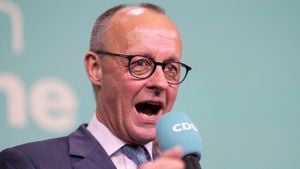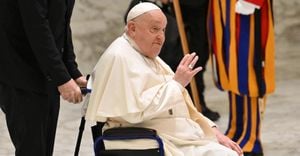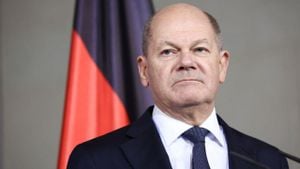Canadian Politics are currently buzzing with two significant events involving prominent figures: Chrystia Freeland's proposal to retract the carbon tax and the petition for the revocation of Elon Musk's Canadian citizenship.
On one side, Chrystia Freeland, who is vying for the leadership of the Liberal Party, is making headlines with her intention to replace the carbon tax with alternatives after consulting Canadians. Just recently, Freeland announced her plan for climate action during a public address, presenting comprehensive measures aimed at curbing greenhouse gas emissions. Her proposal includes reducing pollution from major emitters, assisting Canadians with their energy bills, and investing in affordable, reliable low-emission electricity networks.
Freeland confidently stated, "This plan will enable sustainable progress on climate, without Canadians having to pay the price." She emphasized the importance of collaborative efforts, promising to engage provincial and territorial governments, union leaders, experts, industry stakeholders, Indigenous peoples, and the general Canadian public to devise viable solutions. Her announcement aligns with the upcoming selection of the Liberal Party's new leader set for March 9.
Meanwhile, on the other end of the political spectrum, Elon Musk faces scrutiny as tens of thousands of Canadians have signed petitions requesting the revocation of his citizenship. The initiative, led by Qualia Reed, is currently making its way through the House of Commons, having gathered over 34,000 electronic signatures by Saturday evening.
The petition originates from public sentiment surrounding Musk’s involvement with the Trump administration, which has been perceived as threatening to Canadian sovereignty. Sponsored by NDP MP Charlie Angus, the petition argues Musk has engaged in actions undermining Canada's national interest, especially after Donald Trump suggested imposing tariffs on Canadian goods and joked about Canada becoming the 51st state. Such remarks have ignited outrage among Canadians, prompting this formidable rallying cry for action against Musk.
Despite Musk being originally from South Africa, he holds Canadian citizenship through his mother, who was born in Regina. With the House of Commons set to reconvene on March 24, many anticipate the possibility of a general election before the resumption, keeping the political atmosphere charged.
These events present contrasting approaches to governance and public policy, with Freeland seeking to reshape climate policy through public engagement, and Musk’s citizenship under fire due to political affiliations. Both matters showcase the dynamic nature of Canadian political discourse, as individuals and political parties navigate the complex interplay of environmental responsibility and national identity.
While Freeland pledges to find common ground to replace the carbon tax, Musk’s situation raises questions about loyalty and public sentiment toward influential figures intertwining personal actions with national identity concerns. The outcomes of these initiatives may well shape the future political climate as Canada gears up for potential leadership changes and electoral battles on the horizon.



